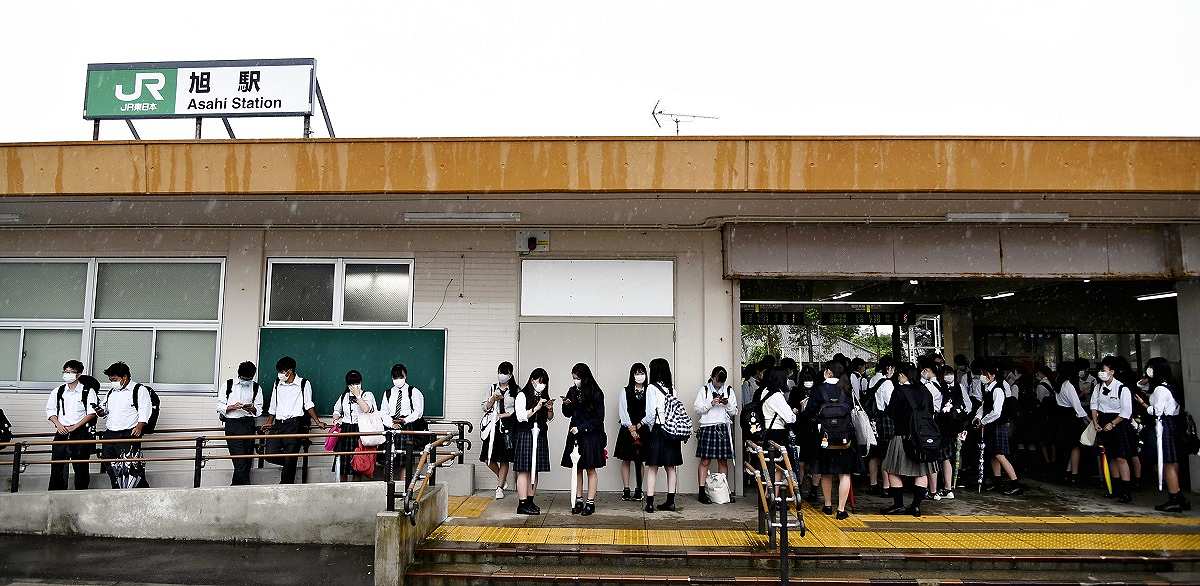‘Slow Slip’ Phenomenon Behind Intensifying Seismic Activities in Eastern Sea Off Chiba Pref. in Japan

Students are seen outside the JR Asahi Station in Asahi, Chiba Prefecture, after train services were suspended because of an earthquake that struck off the east coast of the prefecture in June 2020.
14:35 JST, March 2, 2024
The “slow slip” phenomenon was observed in the sea off the eastern coast of Chiba Prefecture for the first time in about five years and eight months, the government’s Earthquake Research Committee said Friday.
In the past, an earthquake registering up to lower 5 on the Japanese seismic intensity scale occurred several months after the phenomenon, so the committee is calling on the public to stay alert.
The slow slip phenomenon is the slow shift of underground plates. It was observed in the area surrounding epicenters of the recent frequent earthquakes, where seismic activity has been intensifying since Feb. 26.
According to the committee, as of Wednesday, a slow slip of up to 2 centimeters has occurred at the boundary between the Philippine Sea plate and the Pacific plate.
From 1996 to 2018, the area saw six seismic activities involving slow slips, and each activity lasted from one week to several months.
Top Articles in Science & Nature
-

Japan Institute to Use Domestic Commercial Optical Lattice Clock to Set Japan Standard Time
-

Japan to Face Shortfall of 3.39 Million Workers in AI, Robotics in 2040; Clerical Workers Seen to Be in Surplus
-

Record 700 Startups to Gather at SusHi Tech Tokyo in April; Event Will Center on Themes Like Artificial Intelligence and Robotics
-

iPS Treatments Pass Key Milestone, but Broader Applications Far from Guaranteed
-

iPS Cell Products for Parkinson’s, Heart Disease OK’d for Commercialization by Japan Health Ministry Panel
JN ACCESS RANKING
-

Japan PM Takaichi’s Cabinet Resigns en Masse
-

Japan Institute to Use Domestic Commercial Optical Lattice Clock to Set Japan Standard Time
-

Israeli Ambassador to Japan Speaks about Japan’s Role in the Reconstruction of Gaza
-

Man Infected with Measles Reportedly Dined at Restaurant in Tokyo Station
-

Videos Plagiarized, Reposted with False Subtitles Claiming ‘Ryukyu Belongs to China’; Anti-China False Information Also Posted in Japan





















